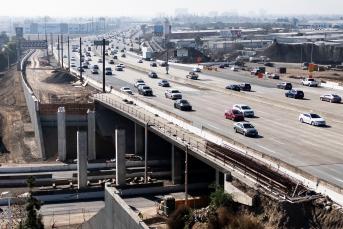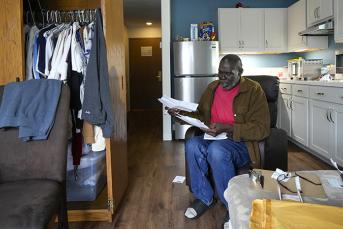
An illustration of financial well-being at the local level—looking beyond income to include credit, debt, savings, assets, and wealth.

Timely data on Americans’ finances and the cost of basic needs by state and congressional district.

A key sticking point in the government shutdown debate is the upcoming reductions in the premium tax credit (PTC), particularly how the credit declines as income increases. Without action by Congress, the reductions expected in 2026 include reimposing an eligibility cliff at 400 percent of the federal poverty level—a bit over $60,000 for a single person. With the cliff in place, the tax credit falls suddenly to zero when income crosses this line.

The Bipartisan Infrastructure Law is up for reauthorization in 2026. New analysis shows that the act increased spending on transportation infrastructure, but most of that money went toward highway projects, not public transit or rail infrastructure.

Misconceptions about Housing First ignore decades of evidence of its effectiveness. To end homelessness, policymakers should invest in evidence-backed solutions, such as permanent supportive housing.





Read: Making Their Voices Heard: Improving Research through Community Collaboration.

Read: Why Investing in Trusted Community-Based Organizations Is Crucial to Sustainability.







